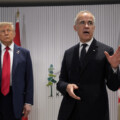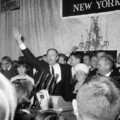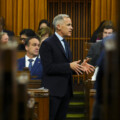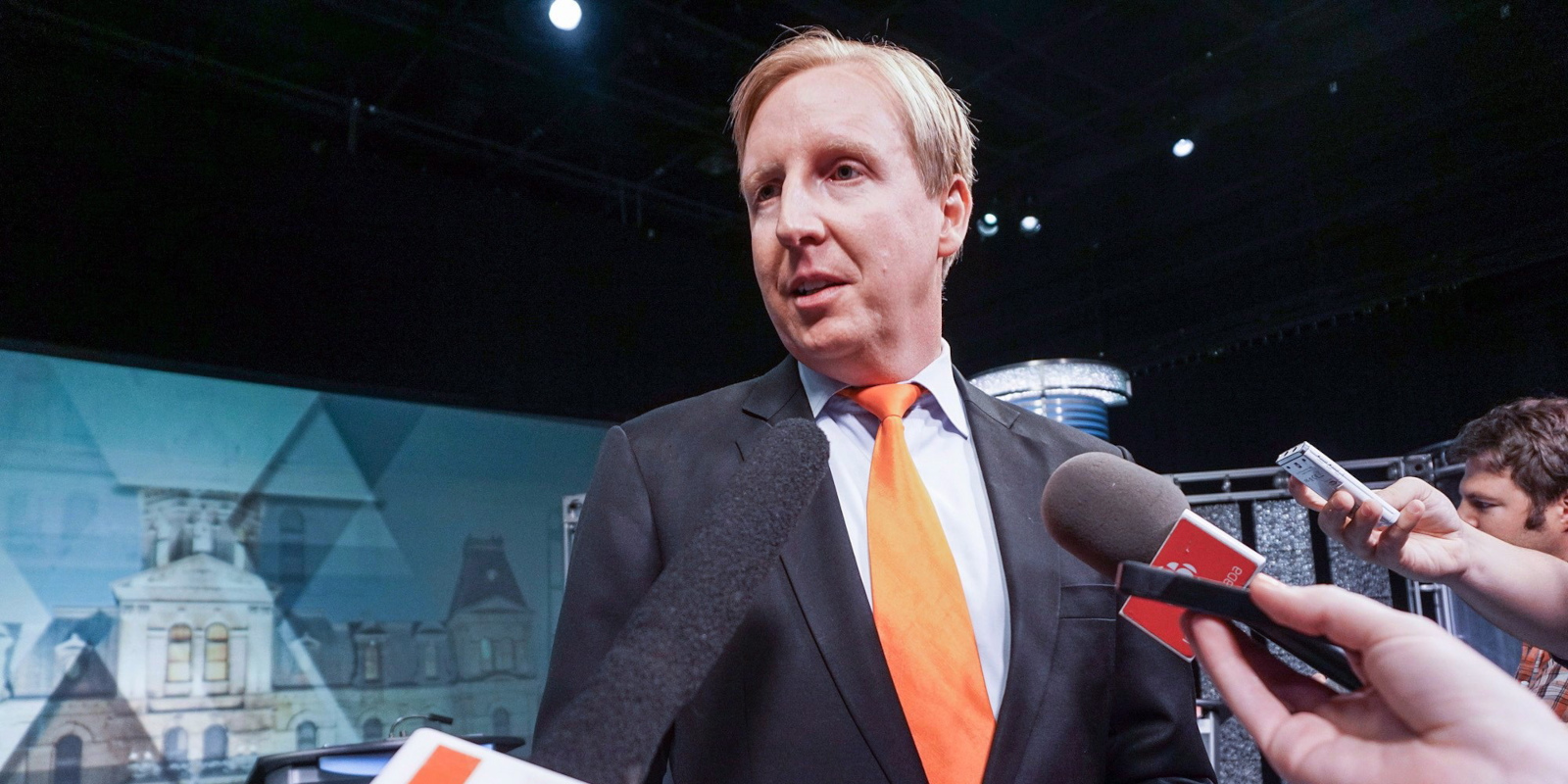A new political party arrived on the scene on Wednesday promising a move away from “extreme positions” but political strategists aren’t preparing any battle plans to fend off this centrist incursion just yet.
The Canadian Future Party’s plan is to pull disaffected voters away from the major parties which, according to a Wednesday announcement, have become too concerned with “pep rallies and social media manipulation.”
But Conservatives aren’t shaking in their boots about losing votes to the new party, according to interviews conducted by The Hub with six former and current party strategists.
“As things stand now, no, I wouldn’t be losing any sleep over the (new) party,” said Dan Robertson, the chief strategist for the 2021 Conservative general election campaign and the founder of Pathos Strategy.
The people around Conservative leader Pierre Poilievre are not feeling much anxiety about the new party so far, according to one person familiar with their thinking.
And call it hubris or call it realistic, but no one in the broader world of conservative strategists is concerned about the party in the wake of Wednesday’s announcement.
Will it have any impact on Conservative strategy in an electoral world of increasingly close races and small margins?
“No. They have zero strategic impact,” said Ginny Roth, a long-time conservative strategist, a partner at Crestview Strategy, and contributing writer at The Hub.
“I think the PPC has more impact on strategy than this party does,” said Roth, referring to the People’s Party of Canada.
Conservative strategists struggled to pinpoint an issue the Canadian Future Party could exploit to differentiate itself from the major parties, the way the PPC has highlighted immigration and COVID-19 restrictions and the Green Party has focused on the environment.
“I don’t believe that this new party is serving any market. There is a centrist constituency but it is not composed of the ‘fiscally conservative/socially liberal’ voter who is largely a figment of the imagination,” said Robertson.
The Canadian Future Party was formed out of the centrist group known as Centre Ice Canadians, which was previously called Centre Ice Conservatives, a group fronted by former Conservative Party leadership contender Rick Peterson.
The group originally convened about 18 months ago in reaction to the party’s recent leadership race, which saw Poilievre win handily.
“We want this to be a new model party. Based on pride in our country. Based on evidence. Based on Canadians talking to each other, face to face. A move away from pep rallies and social media manipulation to doing the hard work of trying solutions,” reads the statement on the Centre Ice Canadians website.
The prospective party will now begin the hard task of recruiting its founding members, building a mailing list of supporters and generally getting the word out, according to the statement, which was written by Dominic Cardy, a member of the New Brunswick legislature and the chair of the Centre Ice Canadians advisory board.
Just the work of setting up a political party is incredibly daunting and will be tough to pull off before the next election, said Mitch Heimpel, the director of campaigns and government relations at Enterprise Canada.
“To get this set up, even in two years, though, that is a Herculean logistics task. And let’s be clear here, almost nobody we’ve seen affiliated with this organization is what we would call in politics, ‘doers.’ They’re ‘talkers’,” said Heimpel.
“It almost seems unfair to call this a vanity project, because I don’t know that the ‘project’ element is necessarily there,” said Heimpel.
The strategists were all surprised by the timing of the announcement about the new party, given that it is designed to be an alternative to the Conservative Party and appears to be launching at a moment when the Conservatives are riding high.
The party is still basking in a successful policy convention in Quebec City earlier in the month and polls consistently show the Conservatives well ahead of the governing Liberal Party.
“It’s just funny that as the Conservative Party is the most united and is experiencing the largest percentage of general population support at any point since the Harper era, they think that now is the time where Canadians are really looking for an alternative,” said Anthony Koch, managing principal at AK Strategies.
“I think they’re talking to a voter that doesn’t exist in large numbers,” said Koch.
Koch said the enthusiasm gap could become apparent when it comes to finding organizers and people to knock on doors during a campaign.
While other parties are fueled by some ideology or another, Koch says this is “a group that’s in search of a problem.” In other words, it’s hard to get people knocking on doors for the cause of centrism.
“What major policy initiatives are going to drive voters to this new party that are different enough from those that other political parties have on offer? In order to begin to find traction among voters, opposition parties need to demonstrate that the status quo is not working,” said Rob Leone, a principal and national government relations lead at Earnscliffe Strategies and a former member of provincial parliament in Ontario.

If the party is looking for big ideas to propel them into the next election, Roth suggested that fiscal issues could be an opening, if the Canadian Future Party is prepared to put out a detailed plan.
“Maybe you talk about very specific deficit reduction plans,” said Roth. “Maybe you say, ‘We need 1990s style slash and burn fiscal policy, and this is what I would cut.'”
Although Poilievre has argued that Ottawa is spending too much, he’s unlikely to propose any specific cuts while campaigning and a new party could push him on that, she said.
Heimpel said that supply management, the system that regulates the production of dairy, poultry and eggs in Canada, could be a good issue for the party, although he said it wouldn’t be a slam dunk.
“They could try and turn the next election into an entire debate on supply management but I don’t know that that will work,” said Heimpel.
Roth said that although populism has become a dirty word in some circles, a more benign version of it has always been a key ingredient in getting elected, whether with Justin Trudeau’s Liberals in 2015 or Poilievre’s Conservatives. Any party deliberately shunning populist ideas may have trouble gaining popularity.
“It worked when it was Trudeau (in 2015) and now it’s working for Pierre and so I get why (centrists) are unhappy, and they feel unrepresented in the big political parties, but, read the room,” said Roth.
Recommended for You

Michel Kelly-Gagnon: Should conservatives be all-in on unions? It’s complicated

Need to Know: Canada once had a model immigration policy. How do we restore it?

‘The most important issue facing the country’: Did the Carney government miss a Canada-U.S. trade deal?

‘He had a cocksureness about him’: Could someone like William F. Buckley Jr. thrive today?



